Halal Japanese C&R Izakaya ‘a hidden gem’!
By Sabuhi Usmani
Halal Status • Fully Halal food menu (no alcohol used in any dishes) • Alcohol served on the premisesHalal and Japanese don’t often go together, so when we came across this Halal Japanese restaurant on Westbourne Road, Bayswater, we were intrigued and decided to give it a go.
First impressions were good, with a lovely relaxed atmosphere and nice friendly staff who welcomed us and made us feel very comfortable.
We ordered chicken gyozas and edamame beans for starters. The Gyozas were okay, but we’ve had better.
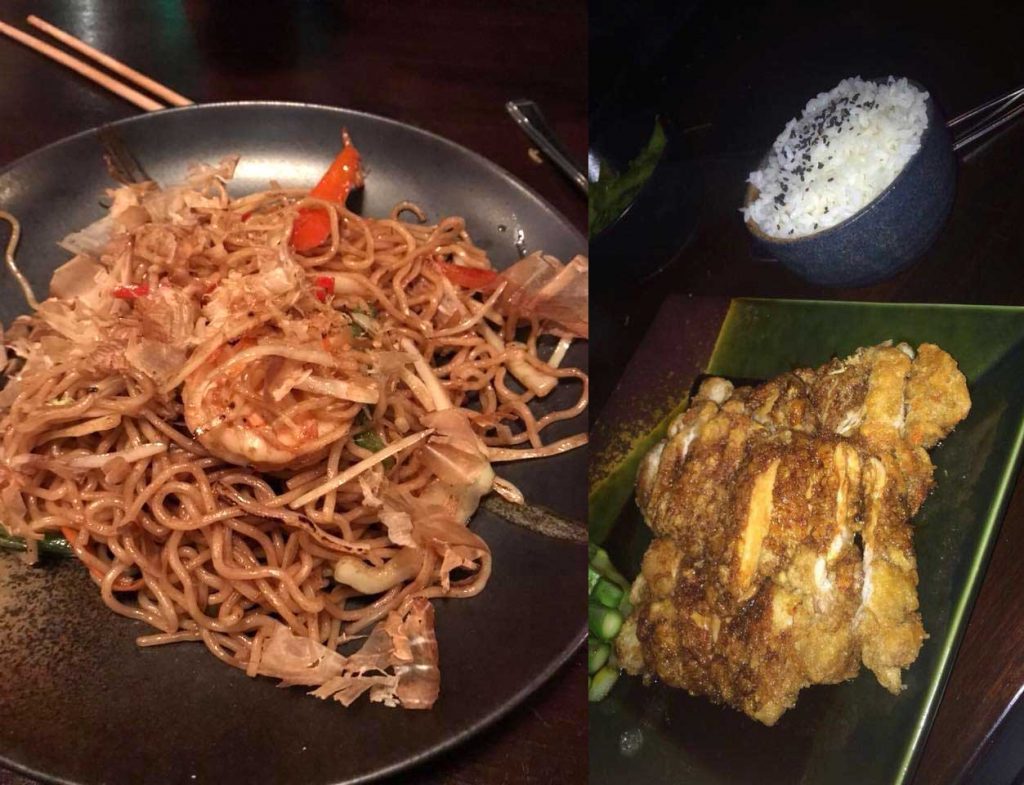
Yaki Soba – Stir-fry thin noodles with prawn & vegetables, £9.90; Chicken Teriyaki – with Asparagus £13.80
For mains, we had Yaki Soba Noodles, which were very authentic in taste with beautiful flavours.
We also had Chicken Teriyaki which had beautiful moist chicken. With delicious flavours, it went down well with the kids.
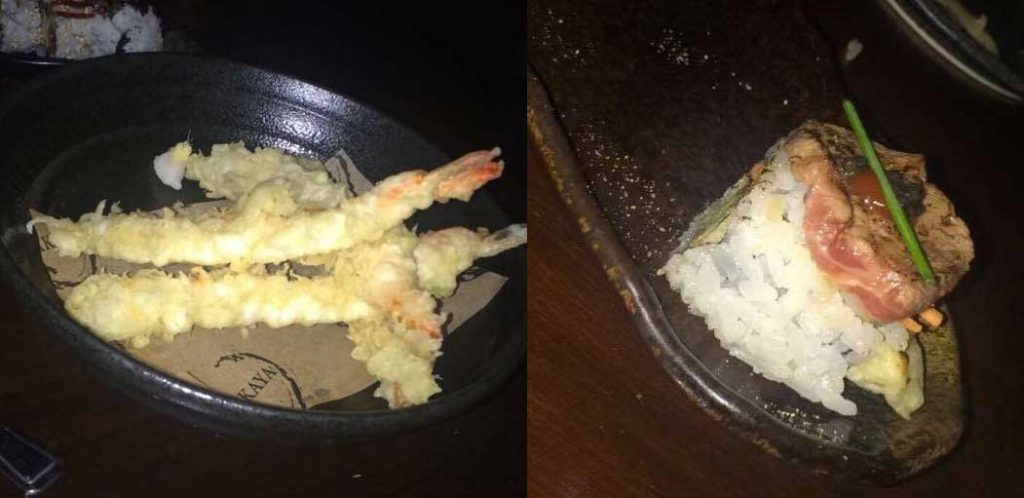
Ebi Tempura – Prawn tempura, £6.20; Wagyu Beef Maki (6pcs) – Home made wagyu, spicy miso, finishing with caviar, £19.90
As for the Tempura Prawns, then they were how they should be – crispy on the outside and delicious on the inside.
The highlight of the day though was the Wagyu Beef Maki. The beef was of the highest quality and cooked to perfection. Just melted in the mouth and was so succulent and tender.
Never had anything quite like that before. A must try if you ever visit this place.
The Crispy Duck Maki was good too, though we preferred the above Beef Maki.
All in all, a great experience. The menu was quite extensive too and the quality of food was very high.
Authentic Japanese’s food, nice ambiance, and a very friendly and helpful staff.
This place is a hidden gem. We are so glad to have found it. Highly recommended!
C&R Izakaya
52 Westbourne Grove, Bayswater, London W2 5SH.
T: +44 (0)20 7221 7979 | W: www.cnrizakaya.co.uk | E: [email protected]
Opening Hours: Mon-Thur (lunch) 12:00-15:00, (dinner) 17:00-22:30 | Fri (lunch) 12:00-15:00, (dinner) 17:00-23:00 | Sat 12:00-23:00 | Sun 12:00-22:00


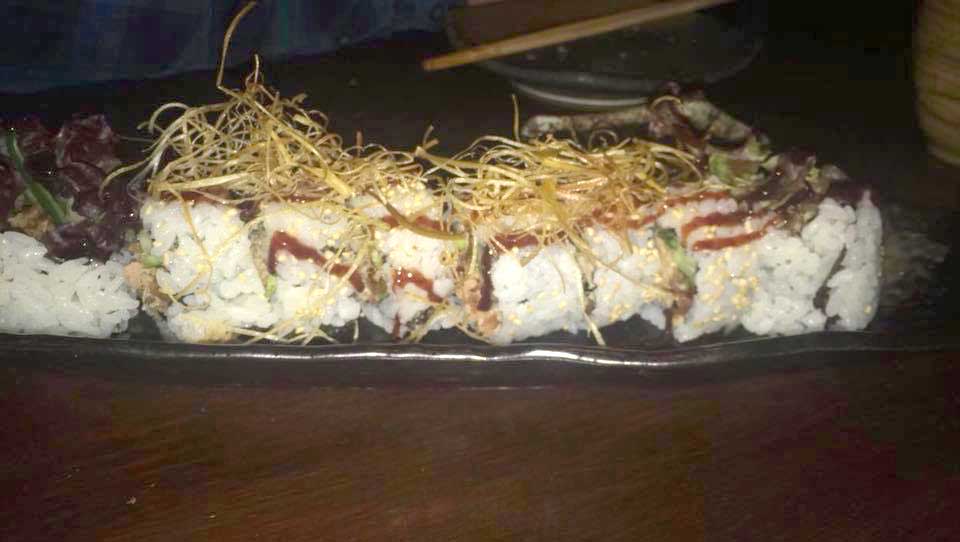
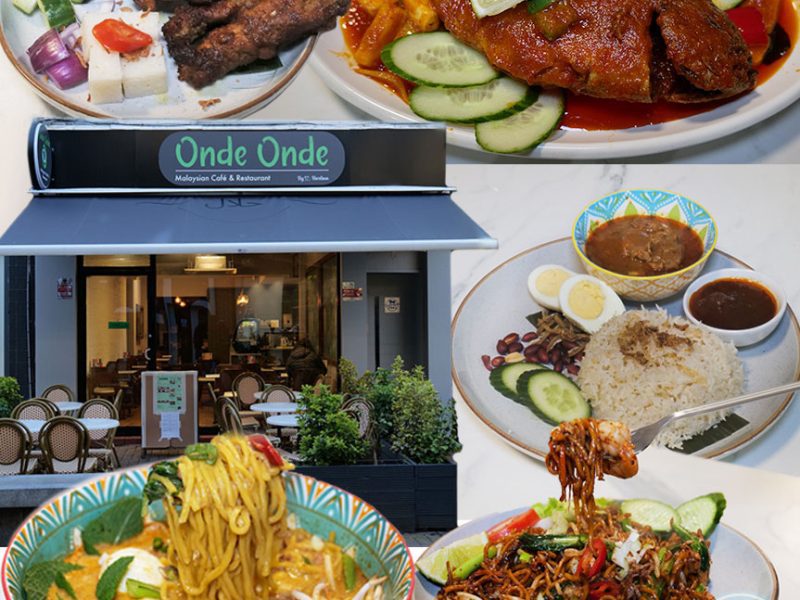

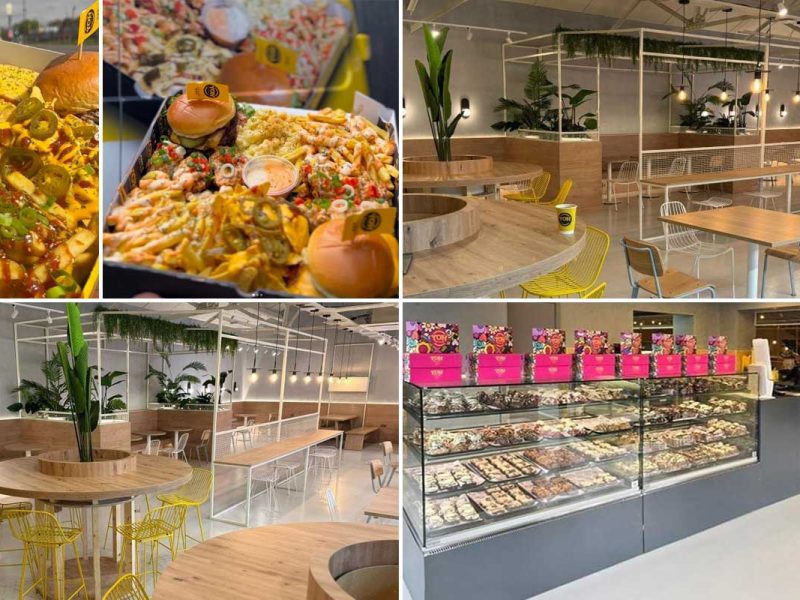
Nipp
/
As always, when it comes to Asian cuisine, in this case Japanese, always carry out due diligence. Japanese cuisine tends to use mirin (sweet rice wine, not be confused with rice wine vinegar), or sake (alcohol), when making sushi (nigiri kind), donburi, and other dishes. Not sure if this is the case here, but always worth asking about this as it’s often a forgotten aspect of making the dish fully halal. Lots of “halal” Japanese/Asian places still use mirin even though it is not halal.
Similarly for soy sauce, which is used in many other dishes. Check which brand they are using. Traditionally, in many Asian (Japanese, Chinese and Thai) restaurants within London, they prefer to use Kikkoman’s Naturally Brewed Soy Sauce, which usually contains alcohol (there is a version that is specifically halal, which has a different shaped bottle, ingredients, etc). Please ask about this too, as this establishment confirmed to me their soy sauce does contain alcohol (“but is cooked off”)!
So, halal signs at a door might be inviting, but know your cuisines – Japanese cuisine is great, but often uses some form of alcohol that many Muslims aren’t aware of (sorry sushi fans). Thankfully, this is something even restaurants in Japan now consider when going halal, but sadly not in the UK.
All this said, your views on alcohol in soy sauce may differ (though mirin is still a wine, not a vinegar).
15 Jul '18Rizwan Sheik
/
I think many brothers and sisters are very confused on the fiqh ruling of alcohol. Alcohol in itself is not actually haram. If it was haram then alcohol wipes, aftershaves and even some natural fruit juices would not be permissible to use or drink.
In fact, it is clear in the fiqh ruling that alcohol is permissible as long as it does not intoxicate. This does not mean that you can eat alcoholic chocolates for instance as even though they contain a small amount of alcohol they will eventually intoxicate any human being due to the fact they have enough alcohol to do so. But for example, if you drink 10 bottles of Lucozade which contains an extremely minute amount of alcohol, will you become intoxicated? Of course not.
Therefore, alcohol in sauces and food that are likely to be an extremely small amount and in most cases cooked will not intoxicate even if large quantities were ingested.
In summary: anything containing alcohol that will eventually intoxicate you is not permissible but eating or drinking something that contains such a small amount that no matter how much you ingest you will not become intoxicated is completely permissible in the books and rulings of fiqh.
14 Mar '19Habib
/
With that theory you can use a tea spoon of beer at any time and put in your food. Eat that food till you die, you wont get intoxicated. From what I know naturally occurring alcohol like in orange 0.5% is permissible even though that amount is much more then putting a table spoon of beer in bread.
16 Mar '19